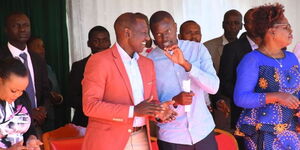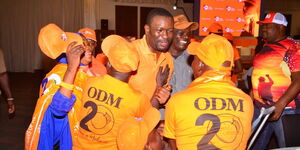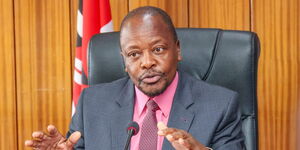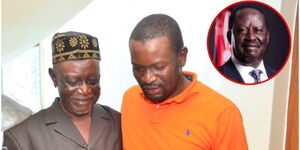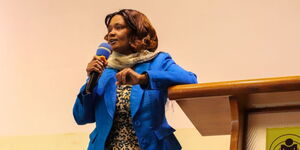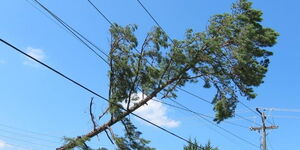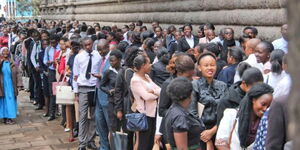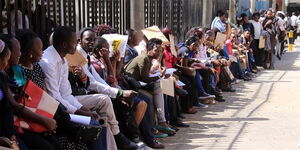For people who grew up in the 1980s, 1990s and 2000s, the voices and appearances of veteran broadcasters such as Khadija Ali, Daudi Kanja, Topi Lyambila, and Sakina Mohammed were a mainstay in Kenya’s broadcasting space.
The quartet, together with others such as Michael Ruthuku, Wangui Mwaniki and John Karani, graced the airwaves at Voice of Kenya (VoK), which later became the Kenya Broadcasting Corporation (KBC), stamping their legacy on Kenyan journalism and shaping multiple careers.
Their articulation, signature voices and dedication to media endeared them to millions of listeners and viewers across the country, earning them recognition and even awards.
The government has now committed to establishing a national repository to document the profiles of pioneering broadcasters and showcase historic broadcast equipment, artefacts, and memorabilia, which could be housed at the National Museums of Kenya, the National Archives, Uhuru Gardens and other national monuments.
According to William Kabogo, the Cabinet Secretary for Information, Communications, and the Digital Economy, this move will be in honour of their immense contribution to the nation’s media landscape and the memories they left on Kenyans.
The development came after a meeting between Kabogo and the icons, where they presented a Memorandum highlighting the challenges they faced and their aspirations to preserve Kenya’s rich broadcast heritage.
Kabogo noted that the move was also part of the restructuring of the KBC to strengthen its role as an educative, entertaining and informative national institution.
Khadija Ali
Khadija was a pioneering voice at Voice of Kenya (VoK), which later became the Kenya Broadcasting Corporation (KBC), in the Kiswahili service.
She developed a passion for radio at an early age as a regular radio listener. Mohamed rose to the position of Chief Producer for the KBC Kiswahili Service, producing programmes like Mchezo wa Radio, Mashairi, and Metro FM’s Meli ya Metro.
Her voice and presence endeared her to millions of listeners and viewers across the country, with her work gaining her recognition and awards.
At a time when broadcasting was largely male-dominated, Khadija was among the first women to rise to senior production roles at VOK/KBC, carving a path for women in radio and TV.
Daudi Kanja
Daudi Kanja, another long-serving broadcaster, is remembered primarily as one of the most iconic Kiswahili radio voices of the VOK/KBC era.
He had had a trademark voice that was deep, smooth, and expressive. Listeners often described it as ‘the voice that defined radio drama and Kiswahili continuity on KBC.’
He became instantly recognizable across Kenya because of his narration style, clear diction, and emotional delivery in dramatic programs. This voice was his signature and one of the main reasons he rose to prominence.
Throughout the 1980s and 1990s, countless Kenyans recall hearing his voice on radio theatre, mchezo wa radio, and drama and cultural programming in Swahili. His ability to switch between acting, narration, and commentary made him a staple of KBC programming.
Topi Lyambila
Lyambila is arguably one of the most decorated TV and Radio sports journalists in Kenya. He started his career working at VoK (KBC).
Apart from anchoring news, he became famous for his sports commentary and received several awards for his role in revolutionising sports journalism in the country.
After his stint at KBC, the sports journalist joined KTN. In 1998, he left KTN and moved to the United Kingdom, where he worked for international media houses such as the BBC, Al Jazeera, and Box Africa TV as a sports journalist.
He is one of the journalists who re-joined KBC after it re-launched in 2021, creating a segment called Legends Edition.
Sakina Mohammed
Sakina was a prominent radio presenter, delivering content in Kiswahili to a national audience. She was associated with morning and daytime shows, engaging listeners with news, entertainment, and cultural programming.
Her voice and presentation style were recognized as warm, clear, and approachable, making her a trusted figure on air.
Through her programs, she helped promote the Swahili language and culture, aligning with KBC’s mission to educate and entertain.
Her decades of experience in the broadcasting space made her a mentor to upcoming female presenters, thus contributing to the continuity and identity of national radio.
From pioneering Kiswahili radio and dramatization to iconic voices in narration, sports journalism, and national programming, the seven broadcasting legends have shaped the airwaves, mentored younger broadcasters, and left an enduring mark on the country’s media landscape.
This recognition will surely serve to rubber-stamp their legacy in the world of media and journalism and highlight the impact they left in the industry.


